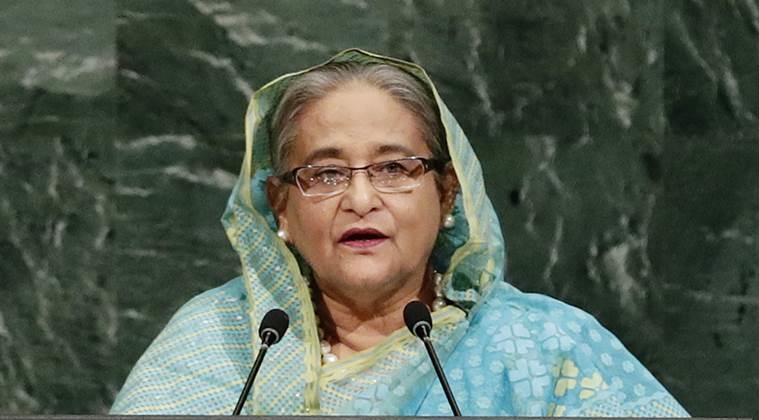Bangladesh’s plea to the UN
April 30, 2018 | Expert Insights

Bangladeshi Prime Minister Sheikh Hasina has urged UN diplomats to persuade Myanmar to take back the 700,000 Rohingya Muslims who fled the region in 2017. Most of these refugees are presently in Bangladesh.
Background
When a fresh bout of violence erupted in Myanmar on August 25th, 2017, over 700,000 Rohingya Muslims fled the region as a direct result. Those who fled the region under dangerous circumstances have since claimed that the nation’s armed forces were involved in activities such as burning homes and attacking women and children. The government and the military of Myanmar have denied such claims.
The international community has expressed its concern over the plight of the Rohingya Muslims and the escalating violence. For the first time in eight years, the UN held its first public meeting on the situation. UN Secretary-General Antonio Guterres said that the violence in the region has "spiraled into the world's fastest-developing refugee emergency, a humanitarian and human rights nightmare." He added, “We've received bone-chilling accounts from those who fled, mainly women, children and the elderly.”
Most of the Rohingya Muslim refugees fled to neighbouring Bangladesh, where many now reside in refugee camps. They have since spoken out about the gruesome violence that they managed to escape by braving dangerous journeys. Rakhine State occupies the northern coastline of Myanmar up to the border with Bangladesh and corresponds to the historical Kingdom of Arakan. Doctors without Borders have revealed that at least 9,000 Rohingya Muslims have been killed between August and September 2017 due to this violence.
Analysis
The United Nations has previously expressed concerns against immediate repatriation of the 700,000 people who have fled Myanmar. The organization has noted that it would not be secure as the region is still vulnerable to violence. However, Myanmar announced in April 2018 that it has successfully repatriated the first Rohingya family. The country has also revealed that it plans on continuing its repatriation efforts.
Recently, members of the UN security council met with some of the refugees who are still in Bangladesh. They expressed dismay at the “overwhelming” suffering they encountered in the refugee camps in Bangladesh. Russia's deputy ambassador to the United Nations, Dmitry Polyansky said, “It's very necessary to come and see everything at place here in Bangladesh and Myanmar. But there is no magic solution, there is no magic stick to solve all these issues.”
The diplomats, comprising representatives from the five permanent Security Council members — China, France, Russia, the United Kingdom and the United States — and 10 non-permanent member states, talked to some 120 refugees, including rape victims. The diplomats concluded their three-day visit to Bangladesh on Monday. Bangladesh Prime Minister Sheikh Hasina has now requested the U.N. Security Council to persuade Myanmar to take back the refugees in time. “They should put more pressure on the Myanmar government so that they take their citizens back to their country. That’s what we want,” Hasina told reporters. Hasina said the refugees should return “under U.N. supervision where security and safety should be ensured”. “They want to go back to their own country. So, the Security Council can play a very pivotal role,” she added.
The refugees themselves have expressed that they are unwilling to return due to fears of escalated violence. The diplomats now head to Myanmar. They will be meeting with State Councillor Aung San Suu Kyi who is the de facto leader of the state. The diplomats will also tour Rakhine to assess the effects of violence first hand.
Assessment
Our assessment is that a rushed repatriation could result in further violence and loss of life in the region of Rakhine. In January, reports emerged that the government fired on Buddhist protestors in the region. Many of the refugees who fled Rakhine undertook life threatening journeys to escape Myanmar and their trust in the government and the military is broken. It is unlikely that a rushed repatriation will be successful unless the government is able to convince them of their safety.








Comments